German Exile Literature
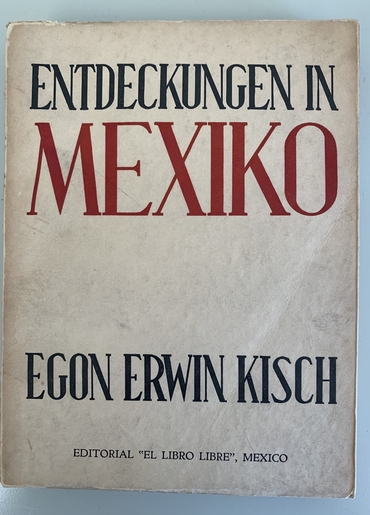
Egon Erwin Kisch (1885 –1948) was a prominent German speaking Jewish journalist and author from Prague who was known as "Der Rasende Reporter" (The Raging Reporter). Kisch's engagement with the communist party made him a target for the Nazi regime. Eventually he escaped to Mexico and became part of a circle of European communist refugees. He published this book on Mexico through the exile publisher El Libro Libre in 1945.
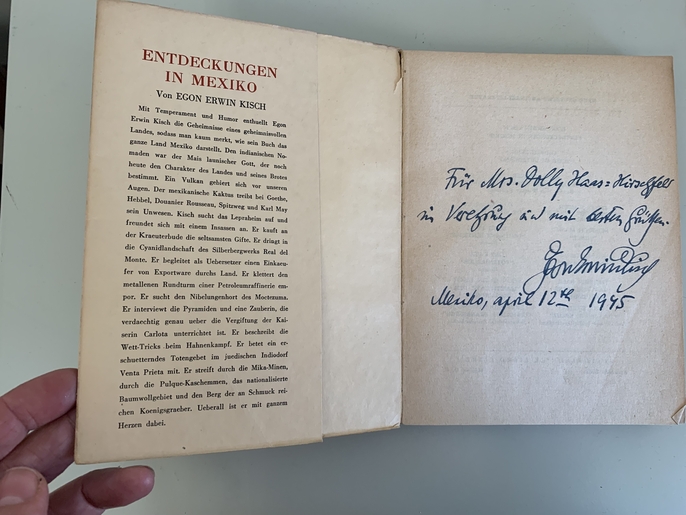
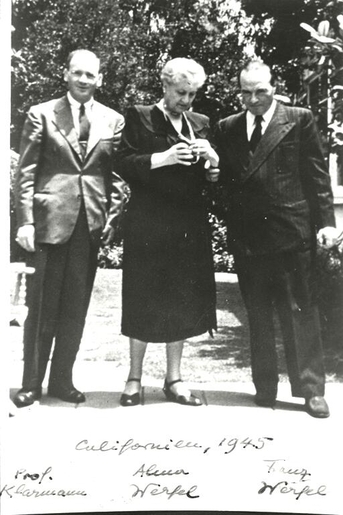
Franz Werfel was born in Prague and became one of the leading authors, poets, and playwrights of pre-Nazi Austria. One of his most famous works, Die vierzig Tage des Musa Dagh (The Forty Days of Musa Dagh), detailed the 1915 Armenian genocide. During WW I, his outspoken pacifism led to a charge of treason. In 1929, Werfel married Alma Mahler, the widow of Gustav Mahler and Walter Gropius. The couple left Austria in 1938 for France, then Spain, and arrived in the United States in 1940.
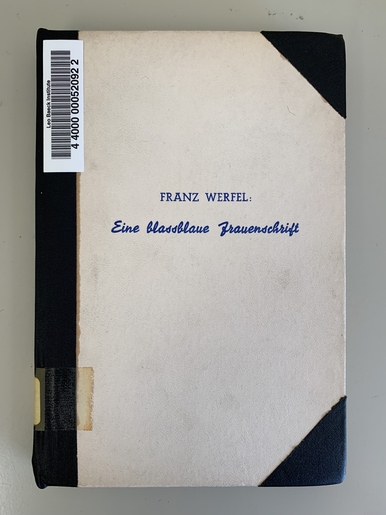
A Pale Blue Woman's Writing was written by Franz Werfel in 1940 in Sanary-sur-Mer and Lourdes and published by the exile publisher Editorial Estrellas in Argentina in 1941. It is a story of the betrayal of love and addresses the latent antisemitism in Austria after WWI.
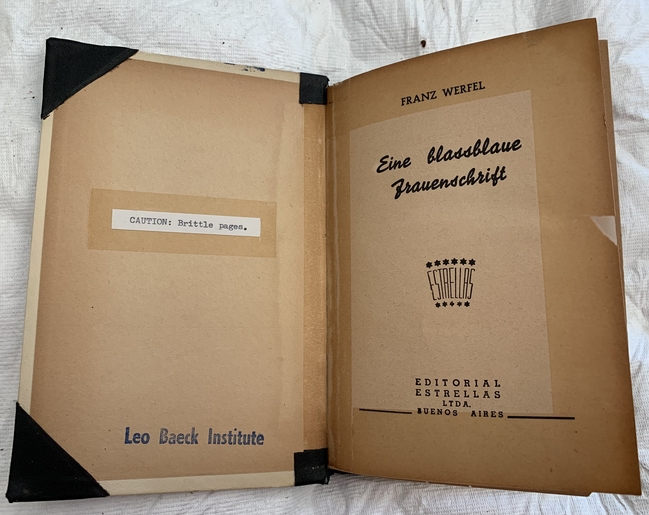
Editorial Estrellas was founded in 1941 and published German-Jewish and Argentine-Jewish authors as well as exile magazines at least until 1949.
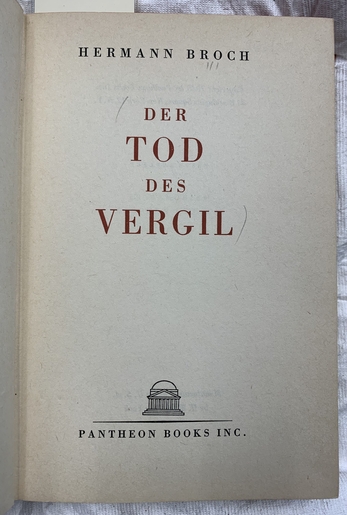
The Death of Virgil reenacts the last hours of life of the Roman poet Virgil when he reflects on the meaning of civilization and culture. Broch started to write the novel in 1936, and finished it in the United States in 1945. Pantheon Books in New York City published the book simultaneously in its original German as well as in an English translation in June 1945.
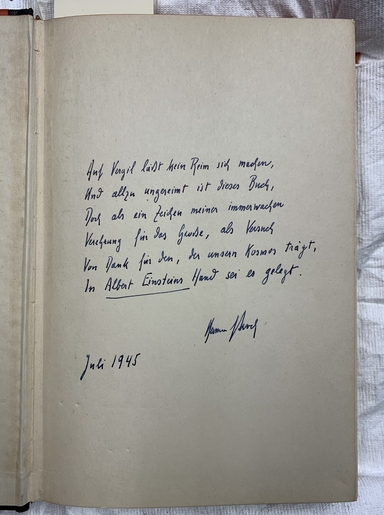
Presentation copy to Albert Einstein with dedication in verse form by Hermann Broch, July 1945.
The Leo Baeck Institute Library has a substantial collection of Exilliteratur (German exile literature). Exilliteratur is a category of German-language books written and published by anti-Nazi dissidents, many of Jewish origin, who fled persecution from Germany after the Nazi Party came to power in 1933 and from Austria after the “Anschluss” in 1938. Authors and publishers often went through at least two stages of exile. Between 1933 and 1939, several European cities, including Paris, Amsterdam, Stockholm, Zürich, Prague, Moscow, as well as cities in the United States and Latin America e.g. in New York and Mexico became centers of German exile writers and publishers. Most of the European cities were later occupied by Nazi-Germany, which, at best, resulted in a second emigration wave to the United States or a life in the “underground.” These exile publishers and authors served the cultural needs of the scattered exile German-language communities, while their books were also brought into Nazi-Germany and Austria as underground literature.
Many of the German-speaking authors in exile were Jews who fled racial persecution in Germany and occupied countries, but the ranks of exile authors included many whose political or aesthetic positions made them a target of the Nazis. As a group, they include many of the most important German literary voices of the 20th century. The best known Exilliteratur authors include: Bertolt Brecht, Hermann Broch, Max Brod, Alfred Döblin, Lion Feuchtwanger, Bruno Frank, Oskar Maria Graf, Hermann Kesten, Siegfried Kracauer, Emil Ludwig, Erika Mann, Heinrich Mann, Klaus Mann, Thomas Mann, Ludwig Marcuse, Robert Musil, Robert Neumann, Erich Maria Remarque, Joseph Roth, Felix Salten, Anna Seghers, Franz Werfel, Arnold Zweig, and Stefan Zweig.
Some important publishers were the S. Fischer Verlag in Vienna and Stockholm, El Libro Libre in Mexico, Pantheon Books, the L.B. Fischer Publishing Corp., the Pazifische Presse, the Malik Verlag in Prague, later in London, and the Aurora Verlag in New York.